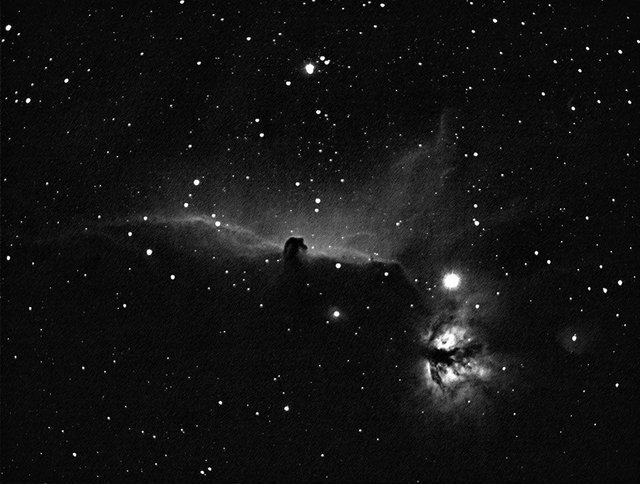Astro imaging from my backyard
For months I've wanted to share something with the Steemit community, but struggled to think of something I thought others might find interesting. Then it occurred to me, I could share something about one of my greatest loves....astronomy!
I took this photo from my do-it-yourself observatory in my backyard, using a Celestron telescope, a Zwo CCD camera and a H-Alpha filter. It used to be, an amateur astronomer like me would need to travel out to the country and find very dark skies, to take an image like this. In my case, that was 60 miles from home. Due to tech advances, I was able to do this image from my light-polluted suburban backyard.
This is the Horsehead Nebula, which lies in the Constellation Orion, about 1500 light years away. The dark Horsehead is visible due to the light from the brighter emission nebula behind it, which is called IC 434. Both are part of the Orion molecular cloud, a huge star-forming region in our Milky Way galaxy.
I'm planning to take a color image of this part of the night sky in the near future. In the meantime, I hope you enjoy this one.

what is is?? i can't see something like this before....
This is a photograph taken at night through my telescope, using a special camera made for "astrophotography" called a CCD camera. It captures a small patch of the night sky, and it happens to be a portion of a star-forming region in the constellation of Orion. Star forming regions like this are gigantic clouds of mostly hydrogen and helium, with some heavier elements mixed in, which eventually condense to form stars (over millions of years). The light from the stars lights up the gas, making it visible. The gases have different colors and densities, depending on their composition. The Horsehead Nebula is simply a formation of dark-colored gas, shaped like a horse's head. It's near the center of the image. The photo I posted is a black and white photo, but a color photo will show reds, blues, greens, etc. at various locations in the image. I will be trying one of those soon.
BTW, you can't see this with your naked eye just looking up at the sky. To see it at all you need to look through a telescope. But even looking through a telescope, it would be much fainter and you would see much less detail than this image. But with a camera taking 30-second exposures, a lot more detail is captured, especially if you take more than one image and "stack" them using special software. The photo I posted used 30 stacked images.
Congratulations @skygazer! You received a personal award!
You can view your badges on your Steem Board and compare to others on the Steem Ranking
Vote for @Steemitboard as a witness to get one more award and increased upvotes!